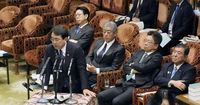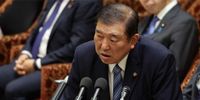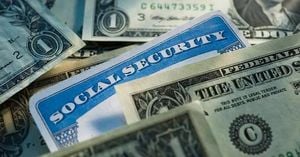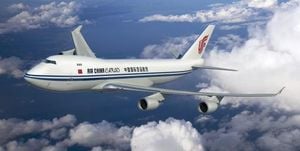Japanese Prime Minister Shigeru Ishiba reaffirmed on Monday, April 14, 2025, that Japan will not rush into compromises during the upcoming tariff negotiations with the United States. Speaking at a budget committee session of the Diet's lower house, Ishiba emphasized the importance of carefully exploring how the two longstanding allies can work together amid rising tensions over trade issues.
Ishiba's remarks came as Japan prepares for ministerial talks in the U.S. later this week, led by Ryosei Akazawa, Japan's economic revitalization minister. Akazawa, who is responsible for the negotiations, indicated that currency issues would not be on the agenda, stating, "We do not intend to make one compromise after another to conclude negotiations swiftly." This decision highlights Japan's commitment to prioritizing its national interests rather than succumbing to external pressures.
The Prime Minister also expressed his concerns regarding the consistency of the U.S. tariffs with World Trade Organization (WTO) rules. The U.S. has recently increased import duties on various goods, including cars, steel, and aluminum, while also imposing "reciprocal" tariffs on its trading partners. Despite these developments, Ishiba has ruled out the immediate imposition of retaliatory tariffs against the U.S. He stated, "I don't think retaliatory tariffs would serve our national interests when we are hit by surging energy and food prices," pointing to the potential for increased inflation in Japan as a result of higher import costs.
While Ishiba remains cautious about retaliatory measures, he has not completely dismissed the option. This nuanced approach reflects Japan's strategic positioning as it navigates the complexities of international trade relations. During a recent phone conversation with U.S. President Donald Trump, Ishiba agreed to appoint ministers to oversee the tariff negotiations, emphasizing the need for effective communication between the two nations.
Akazawa is set to prioritize Japan's interests in the upcoming discussions, which are expected to cover a wide range of topics, including tariffs, non-tariff barriers, and government subsidies. U.S. Treasury Secretary Scott Bessent has expressed optimism for a productive engagement, stating he looks forward to addressing various trade issues. However, Yoshihiko Noda, leader of the main opposition Constitutional Democratic Party of Japan, raised concerns that the U.S. may push for a weak dollar and seek an agreement similar to the Plaza Accord of 1985, which aimed to depreciate the U.S. currency.
Noda, who previously served as Japan's prime minister, warned that currency issues could become a bargaining chip in the negotiations. He stressed that these matters should be discussed by Finance Minister Katsunobu Kato and Treasury Secretary Bessent, reinforcing the importance of a coordinated approach to currency stability.
As Japan prepares for these critical discussions, the nation continues to urge the U.S. to reconsider its tariff measures. Although part of the 24 percent "reciprocal" tariff imposed on Japanese goods is currently on hold for 90 days, a baseline 10 percent duty remains in effect, alongside the levies on cars, steel, and aluminum. This situation underscores the delicate balance Japan must maintain as it seeks to protect its economic interests while fostering a cooperative relationship with the U.S.
In summary, Prime Minister Ishiba's statements reflect Japan's careful strategy in navigating the complexities of international trade negotiations. As the country faces rising energy and food prices, it is essential for Japan to approach these discussions with a clear focus on its national interests, while also considering the broader implications for its relationship with the United States. The upcoming ministerial talks will be a significant test of diplomatic skill as both nations strive to find common ground amidst challenging economic conditions.





